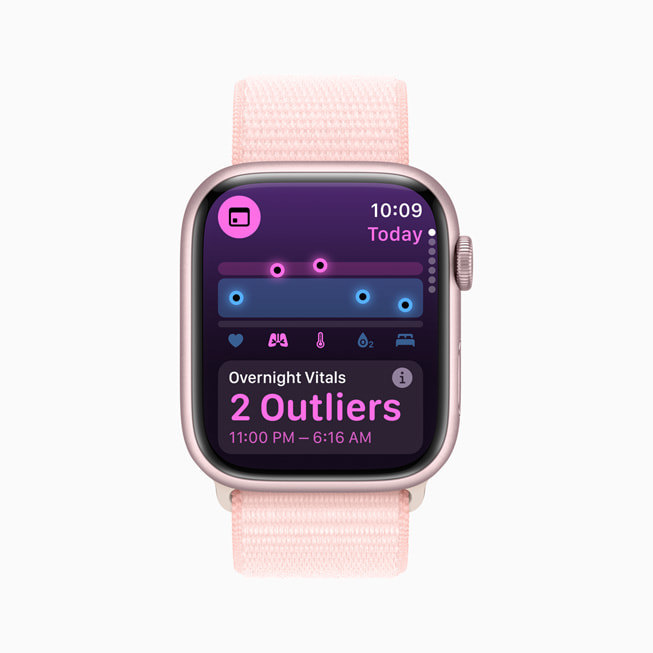
For years I’ve taken off my Apple Watch every night before bed.
I’ve always slept with it on charge so I can start the next day with a full battery.
But if you want to get the most out of Apple’s new Vitals app, Dr Sumbal Desai says, that has to change.
“Physiologically your body enters a basal state at sleep,” explained Apple’s vice president of Health on a call with 9news.com.au.
READ MORE: What does the AI revolution mean for smartphones?
“It’ll generate your best baseline over a period of weeks and then, when you see two or more metrics off, you’ll actually see the numbers change.”
A beta version of the app is available now for early adopters but, for most Apple Watch owners, the new Vitals app will appear later this year when watchOS 11 rolls out.
The update will add a suite of new features including the ability to translate 20 languages on your wrist, pinching your fingers twice to scroll as well as data that tracks your ‘Training Load’ so you can better understand the intensity of a workout and how that affects your body and recovery.
By comparison, the incoming Vitals app is a new way to interact with old data the Apple Watch has been measuring for years, including a person’s heart rate, respiratory rate, wrist temperature, blood oxygen levels and sleep quality.
READ MORE: Apple Vision Pro hands-on review: A remarkable device in search of purpose
The secret sauce is combining that data in one place.
“There’s never a better time to sleep with your Apple watch,” says Dr Desai.
“The idea is, by bringing those metrics together, we can give you a daily health status and that hopefully will give you more actionable information and how you live your daily life.”
“You will get notified if two or more metrics are out of range. So, for example, if your heart rate and your wrist temperature are high that this can be due to illness, alcohol consumption or your menstrual cycle.”
“We would (then) notify you and kind of call those things out.”
READ MORE: Apple Vision Pro is coming to Australia
“We don’t tell you, go get care. What we tell you is, ‘Hey, this might be off.”
9news.com.au has previously interviewed men and women who say their lives were saved by their Apple Watch.
Lexie Northcott brushed off warnings about her low heart rate for a year before the 16-year-old discovered she was suffering a complete heart block.
Stories like Lexie’s, according to Dr Sumbal Desai, are what continues to drive Apple’s focus on health.
“We really feel this profound responsibility to have an impact on people’s health because we have the honour of being with you all the time.”
“Apple does not ever see that data, it’s encrypted on your device.”
“So the idea is for this to be a partner in your health and continuously inform you to make more actionable, informed decisions.”
links to content on ABC
9News





